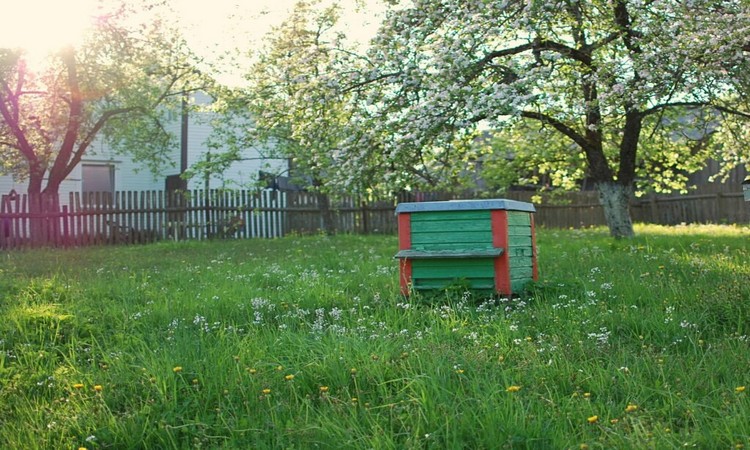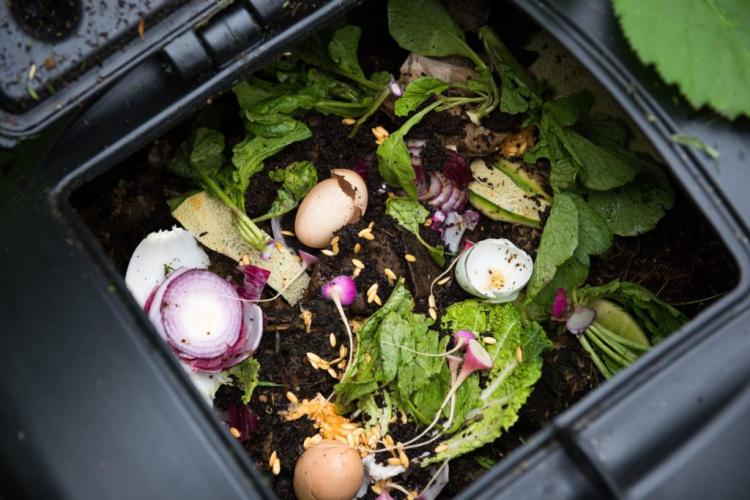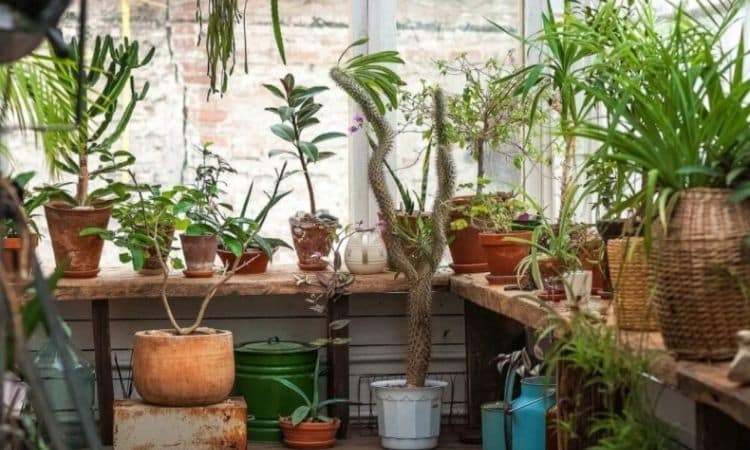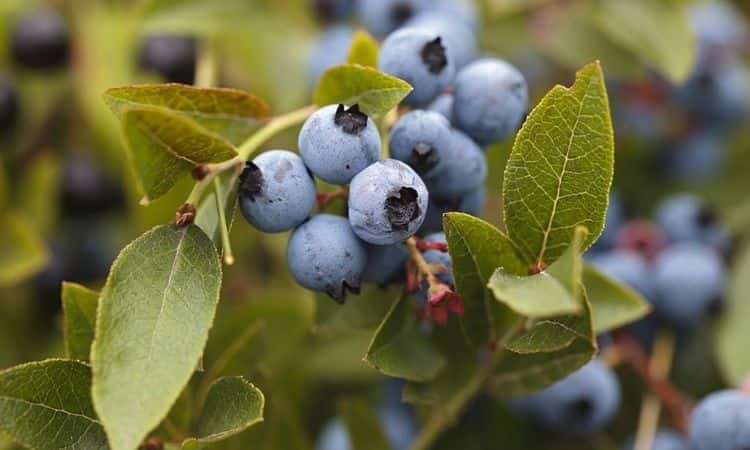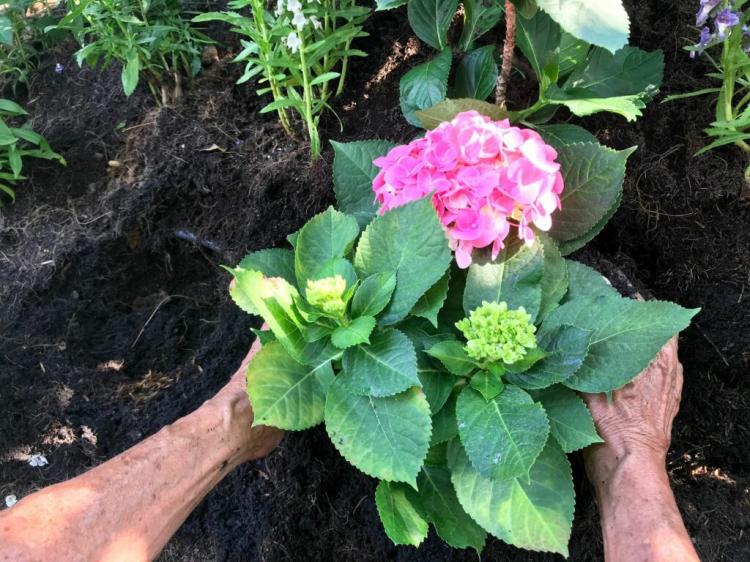Why Are Bees Important In The Garden?
If bees find good living conditions in gardens, this is also true for many other species. You can find out more about the benefits of bees in the garden here.
In an ecosystem, many factors are interconnected like cascades. Changing a single cog in the system can cause a wave of unpredictable reactions. We live in a barely comprehensible, complex world that is changing at breakneck speed. Insects are dying, yet we still know far too little about where insect mortality is headed and what we can do about it.
So it does us good to be able to turn to the best-researched insect: The honey bee. If we help it, we help others and ultimately ourselves. The best place to start is with the bees in our own garden. Below, we’ve summarized what bees actually do and how we can support them in the garden – a big concern for us as the Plantura team.
The “bee,” as beekeepers affectionately call the superorganism from the Hymenoptera family, provides invaluable services to humans and ecosystems. Each in itself is reason enough to plant the own garden or balcony bee-friendly, if already no own bees can be held. The Gardender bee pasture seed mix, for example, is ideal for this purpose. We show why the bee is so important.
Pollination And Biodiversity
For the gardener, this is one of the most important arguments: Bees are pollinator insects for much of the native flora and crops. They are also “bloom-testing,” meaning they fly to flowers of the same plant species as best they can during an outing. This makes them a reliable pollinator because to form fruit, the flower must come into contact with pollen of the same species.
Many other pollinator insects, on the other hand, visit matching flowers purely by chance – or sometimes not. In orchards and vegetable gardens, therefore, the help of bees is indispensable. According to a study in England, bees account for at least a third of all pollination. But what makes the harvest really good is the balanced interplay between different species. In the USA alone, there are around 600 species of bees. Wild bees, bumblebees, flies, and beetles, for example, take over the trips at lower temperatures and have other pollination techniques that complement each other well.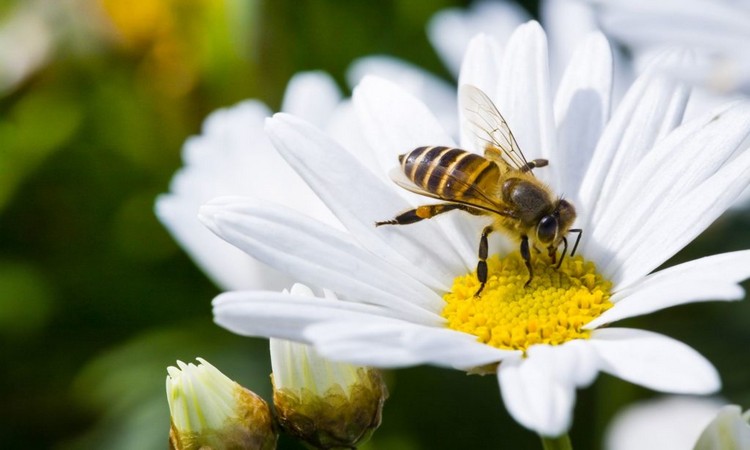
So if you don’t want extra work, but “just” better pollination, you don’t need to become a beekeeper. As is so often the case in nature, a high level of biodiversity and the right mix help complex ecosystem processes to regulate themselves without further human intervention. And yet, all of our efforts are needed when it comes to preserving this biodiversity. You can read tips for a bee-friendly garden here.
Incidentally, the bee not only contributes to biodiversity through pollination but also forms an important part of the food chain for insectivorous animals with its high biomass. For orientation: a pair of titmice needs about 20,000 insects to raise their brood. A queen bee produces 2,000 bees per day. So if the bees die, so do the people – a formula that has been much strained by the media lately. However, there are also new scientific research results that speak for this connection. The importance of bees for the nutrition of mankind becomes clear with the following figure: According to an American study, 1.41 million more people per year could die of malnutrition and hunger due to the lack of their pollination service alone.
Bee Products
Who would like to increase not only the yield of the vegetable garden but also use the whole range of the bee products, for which the promotion of the bee is immediately again so interesting, possibly even own hobby beekeeping comes into question. Because the bees have not only honey to offer: Pollen, propolis, royal jelly, and wax are the most important raw materials, which in turn can be refined into numerous different products and used in apitherapy as medicines. As a garden lover, you can capture the individual taste and scent of your own garden in the honey jar.
With some experience and marketing skills the hobby finances itself or even some pocket money remains. In addition, hobby beekeepers makeup 95 percent of beekeepers and thus contribute the lion’s share to the maintenance of bee colonies. The average number of colonies per beekeeper is just under seven colonies. Diseases and winter failures do not hit several hundred colonies of a beekeeper with full force at once but can be compensated more easily.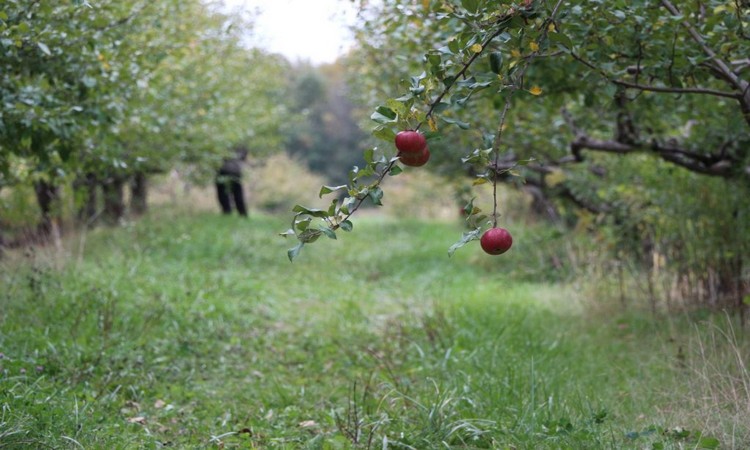
Nature Experience And Bee Protection
In the midst of all the concern about the state of the world in general and that of insects in particular, one thing must not be forgotten: A day at the apiary can have a wonderfully relaxing effect. Hectic is best left at home if you don’t want to get stung. But then you will be rewarded with an experience for all your senses. The taste of warm honey, the gentle buzz of a peaceful colony, the scent of wax, and observing the mysterious processes in the hive: anyone who has already had the opportunity to gain experience with bees are easily addicted and wants to go among the beekeepers purely out of love for these fascinating animals.
And that’s a good thing because bees need people: since the introduction of the varroa mite from India in the 1980s, European honey bees have been completely dependent on the care of beekeepers. Hardly any colony would survive winter without varroa treatment. Bee diseases spread worldwide by humans, pesticide use, and climate change are other complicating factors. Even more, reasons to become active for the insects.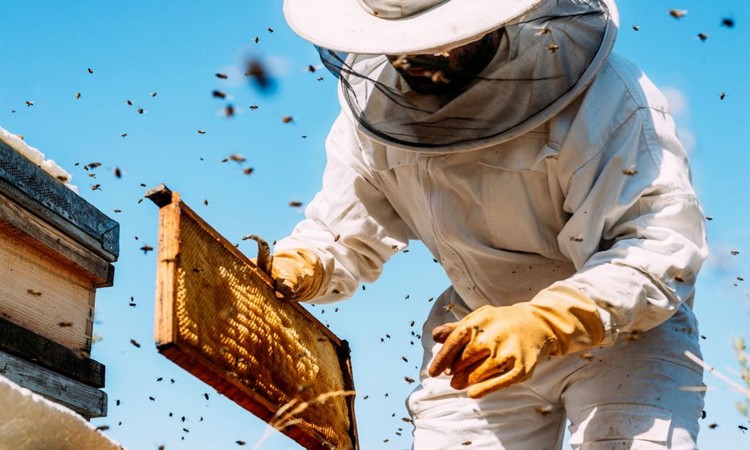
If you want to keep bees without much effort, because the protection and observation of the honey bee should be in the foreground in the keeping, labor-extensive modes of operation are suitable. The interventions in the bee colony are reduced to a minimum, some even do without honey harvesting. If you want to awaken your children’s love of nature with the nature experience, beehives with showcases are a good choice. These are particularly fascinating to children and allow them to experience the complex life of bees up close.
You might so like: Bees In The Garden: Everything You Need To Know About It
